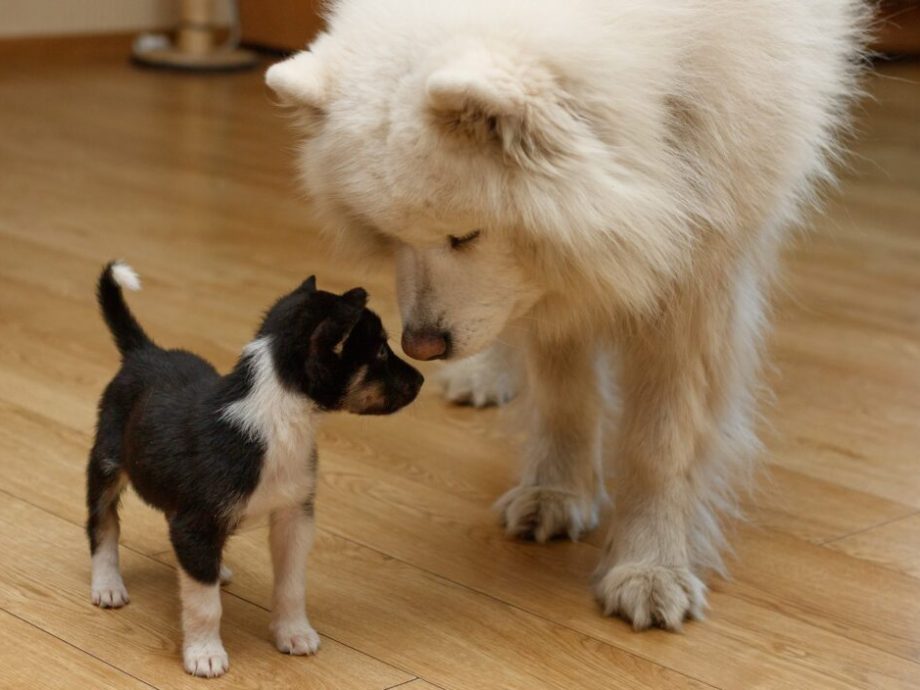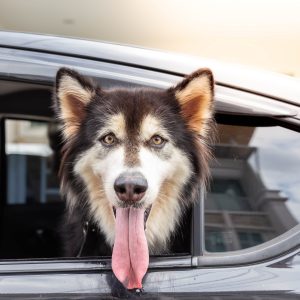Once these aspects have been considered, determine which breeds may adapt better to your lifestyle. Think about your own daily routines. Focus on aspects like the hours you spend outside the house. Do you live in a house or a flat with or without a garden? Your financial situation may also be important given that certain breeds (due to their size or disease predisposition) may involve higher expenses.
Pure bred or crossbreeds
Although we discuss the different characteristics of dog breeds in this article, you should consider adopting a crossbreed dog. There are plenty of abandoned animals waiting for a second chance in shelters and sometimes you can opt to rescue a dog that combines aspects and personality of different breeds. Some shelters may also have pure bred dogs. If you opt for a specific breed, it is important to confirm the background of the breeder, since some unlicensed ‘puppy farms’ may prioritise breeding and selling animals over their health and welfare.
Dog breeds
The kennel club currently includes 222 recognised pedigree breeds. In this article you can find information for some more popular breeds.
- Beagles are friendly but also quite stubborn and food focussed. They are active and energetic and require attention and daily play time. Their coat is short and does not require lots of care. Overall, they are healthy, but can suffer from conditions such as meningitis.
- German Shepherds require training and consistency. They are very loyal and a guardian by nature. They can suffer from certain orthopaedic diseases and shed lots of hair.
- Pomeranians can be authoritarian but also very lively. They are energetic and require frequent grooming and can be predisposed to tracheal collapse (narrowing of the windpipe).
- Miniature Schnauzers are loyal, intelligent, and lively. They tend to shed only a small amount of fur. Overall the breed has good health.
- Border Collies are extremely clever and active. They require lots of exercise and mental stimulation. They love being next to their owners and the breed has variable length fur. Among other health problems, they can suffer from orthopaedic diseases and epilepsy.
- Bernese Mountain Dogs require training and an adequate level of exercise. They are loyal and protective. The hair is quite long and requires frequent grooming to avoid mats. They can suffer from hereditary orthopaedic diseases and neoplasia. Due to their size, these dogs may require a bigger financial commitment.
- Cocker Spaniels learn quickly and are very friendly. They should be groomed once a week and are a great choice for a family.
- Dalmatians can be quite protective but are usually friendly. They require lots of exercise, and the coat sheds all year. They have a unique urinary tract that can predispose them to bladder stones.
- English and French Bulldogs may have significant health problems (mostly related to their facial form). When choosing this breed, ensure that the breeder is not selecting certain features that could worsen their breathing. They are friendly and do not require lots of exercise, and this should be avoided during hot weather. Their hair is short.
- Pugs have similar respiratory problems to the bulldogs. They are playful and the fur requires minimum maintenance. Besides respiratory problems Pugs can suffer from certain spinal cord diseases and vision problems.
- Poodles are very intelligent and easily trained, energetic and sociable. They require daily activity to satisfy their energy levels. Daily grooming is also necessary. They can suffer from hormonal diseases.
- Cavalier King Charles Spaniels require moderate activity with a long hair that requires regular grooming. They are extremely friendly. Predisposed to heart disease.
- Chihuahuas are very protective of their owners. They are active but also keen to rest. The coat does not require excessive care. Due to their small size they can get cold quickly. They can suffer from periodontal disease (and therefore dental care is very important), heart disease and patella luxation.
- Golden and Labrador Retrievers are extremely friendly and popular. Quiet and relaxed but also very playful, they require physical and mental stimuli, and they are very food focussed.
- Greyhounds and Whippets absolutely love running. Their sweet character and intelligence make them a perfect family dog. They shed a minimal amount of fur and may require a dog coat or jacket in winter.
- Yorkshire Terriers have strong personalities, are very energetic and may be overly protective. They enjoy attention and benefit from moderate exercise. It is important to socialise them early in life.
- Dachshunds can be a bit stubborn, but they are also friendly and energetic. They do not require long walks and it is recommended to limit jumping due to their fragile backs. The grooming requirements depend on the type of coat.
The summary of characteristics and disease predispositions in this list is not exhaustive, and thus, a thorough research into the characteristics, requirements and health issues associated with a specific breed is strongly advised before choosing your long-term companion.








